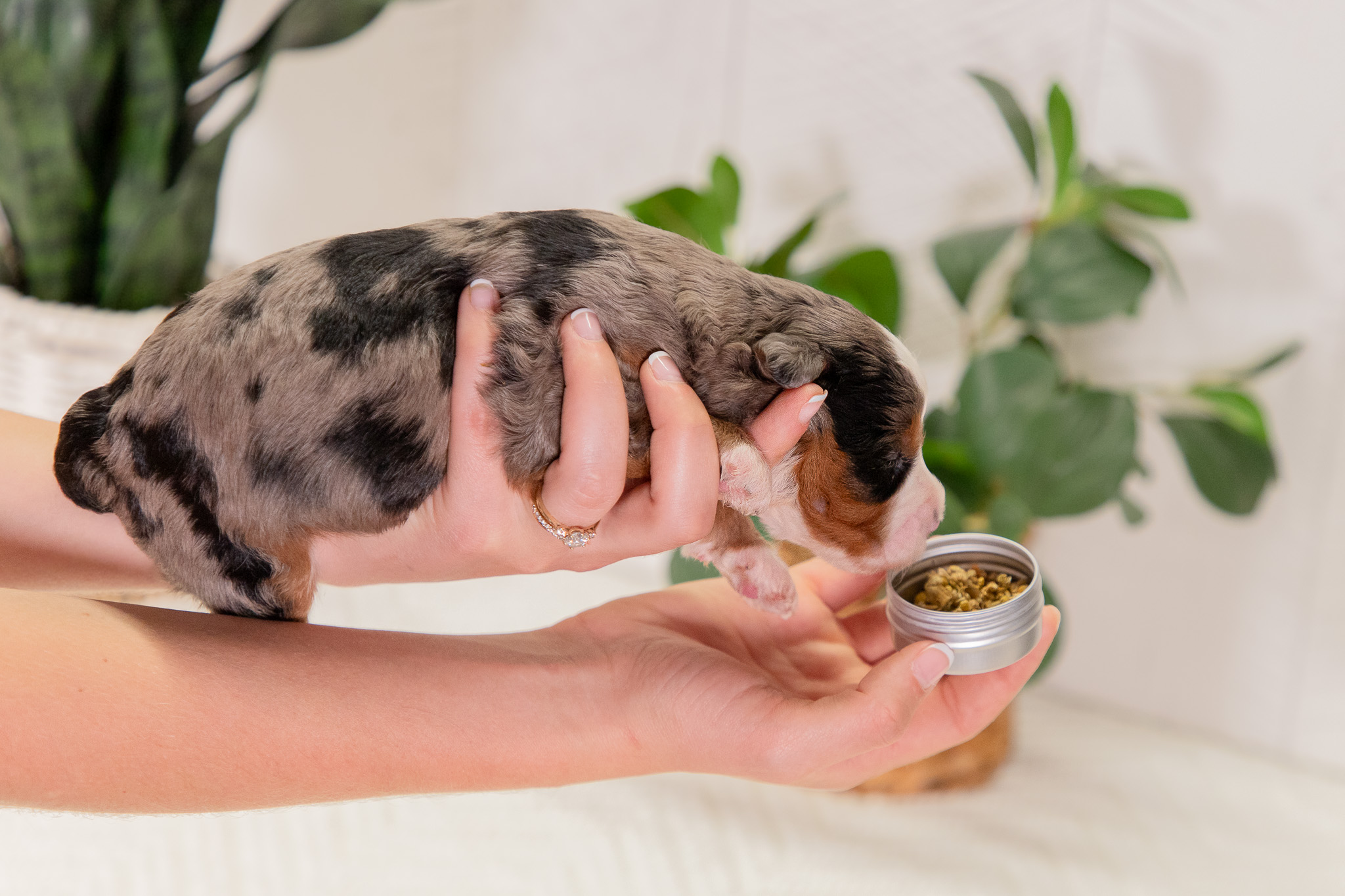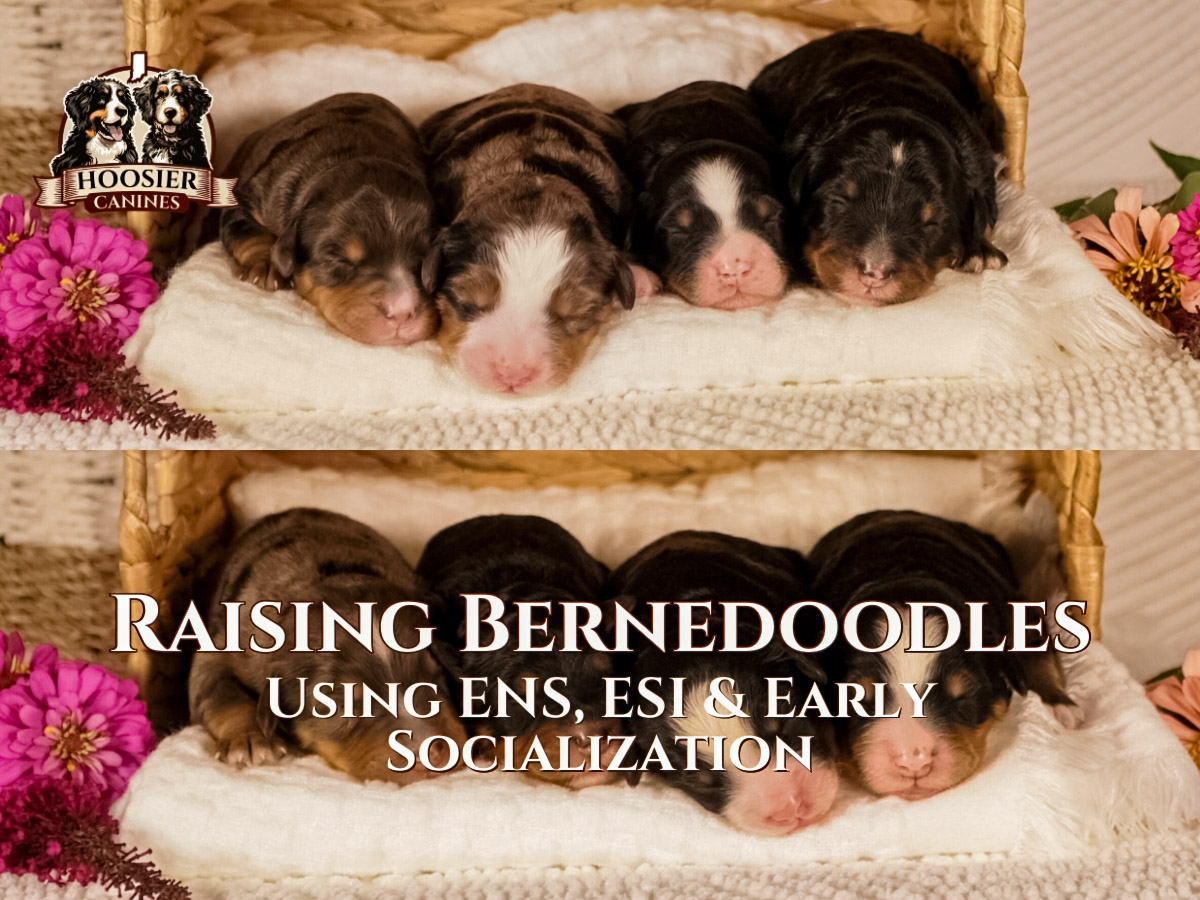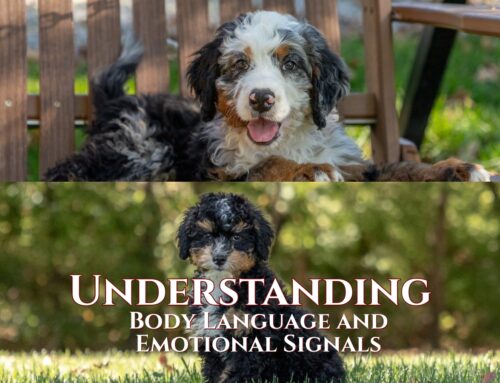Early Neurological Stimulation | Early Scent Introduction | Bernedoodles
Dreaming of a Bernedoodle who’s not just adorable, but also calm, confident, and ready for anything? Many new puppy parents face challenges like anxiety, difficulty training, or fear in new environments. But what if health and happiness for your future furry family member began long before they even step paw in your home? At Hoosier Canines, we believe a truly well-adjusted Bernedoodle isn’t just born; they’re intentionally raised.
We go far beyond standard care, implementing scientifically-backed protocols in our nursery that shape a puppy’s mind and body for life. Discover the three powerful pillars of our early development program: Early Neurological Stimulation (ENS), Early Scent Introduction (ESI), and purposeful socialization. These aren’t just buzzwords; they’re the foundation for a resilient, well-adjusted companion ready to bond deeply with your family.
Why Health Starts Long Before Your Bernedoodle Comes Home
It starts in our nursery, days after birth, where we implement scientifically backed protocols that go beyond health testing and pedigree. While our OFA-certified parent dogs provide the strong genetic foundation, it’s what we do in those first eight weeks that shapes a puppy’s mind and body for life.
The Science of ENS: Helping Puppies Handle the World with Confidence
Early Neurological Stimulation, or ENS, was developed by the U.S. military for its “Super Dog” program. The concept is simple: a few seconds a day of mild, controlled stress during a puppy’s earliest days can yield lifelong benefits. Between days 3 and 16, we gently guide each puppy through a series of five short activities:
- Tactile stimulation (e.g., gentle tickling between toes)
- Head Held Erect (briefly holding them upright)
- Head Pointed Down (gently inverting them)
- Supine Position (cradling them on their back)
- Thermal Stimulation (brief exposure to a cool surface)
Each session takes less than a minute, but the impact is measurable. ENS has been shown to improve cardiovascular strength, boost immune response, and enhance stress tolerance. Over time, this leads to puppies who are less startled by change, more adaptable to new experiences, and quicker to recover from challenges like crate training, vet visits, or that first car ride home.
At Hoosier Canines, we’ve seen the difference. ENS puppies are often the first to explore a new toy or environment and the last to panic when something unfamiliar happens. That kind of resilience doesn’t just make life easier for them; it makes your transition as a new puppy parent smoother, too.
ESI: Building Brains Through the Nose
While ENS focuses on touch and movement, Early Scent Introduction (ESI) targets one of the earliest senses to develop in puppies: smell. Introduced between days 3 and 16, ESI involves presenting one new, non-harmful scent each day for brief, but powerful brain exercise.
These scents can include familiar, safe items like an orange peel, leather, clove, or fresh herbs. Other common options might be basil, cinnamon stick, a clean sock, or even natural materials like pinecones or feathers. What seems like a simple sniff is actually a workout for the nervous system. Each new scent challenges the puppy’s brain to process something novel, helping build stronger neural pathways during this crucial developmental window.
Puppies exposed to ESI often show sharper scenting ability later in life and tend to approach new environments with curiosity instead of fear. That matters, not just for working dogs, but for any family companion learning to navigate a world full of unfamiliar smells.
Socialization That Starts Before They Can Walk
Many breeders say their puppies are “socialized,” but at Hoosier Canines, we take it several steps further. Socialization isn’t just about meeting people; it’s about preparing puppies for life in a human world. That means gradually, thoughtfully exposing them to all the sights, sounds, and experiences they’ll encounter in your home, while supporting their confidence along the way.
Our structured plan begins early and builds weekly:
Weeks 1-2
- ENS & ESI begin
- Gentle daily handling
- Tactile bonding with mama and caregivers
Weeks 3-4
- Introduction to new surfaces (grass, carpet, tile)
- Exposure to household sounds (TV, vacuum, dishwasher)
- Beginning visual tracking with toys and mobiles
Weeks 5-6
- Puppy playgroups to develop social cues
- Startle-and-recovery exercises (e.g., dropping a spoon = treat)
- First crate exposure and grooming practice
Weeks 7-8
- Intro to leash and collar
- Vet-style handling (ears, paws, mouth)
- One-on-one time away from littermates
Each of these experiences is age-appropriate and gently scaffolded to help our puppies develop confidence, not fear.


Why It Works: The Research and Results
Scientific studies in canine development, and even in human child psychology support the long-term benefits of early enrichment. Puppies raised in stimulus-rich environments show better learning abilities, more stable temperaments, and fewer behavioral issues. They’re less likely to develop fears, separation anxiety, or reactivity challenges that can make puppyhood overwhelming for families.
At Hoosier Canines, we’ve seen this translate to real results. Families often tell us their puppy slept through the night from day one or bonded with children immediately. We’ve had first-time dog owners surprised by how quickly their Bernedoodle took to training, or how calmly they handled chaos like family gatherings or fireworks.
“She came home already crate-trained and ready to love. You could tell she was used to people, sounds, and being handled. It made all the difference.” The Reynolds Family, Indianapolis
More Than Just Socialized: Giving Puppies a Confident Start
At Hoosier Canines, we don’t just introduce puppies to sounds, sights, and people, we help them learn how to handle the new and the unexpected. Through thoughtful early experiences (like gentle handling, new textures, and everyday household noises), we give each puppy a chance to build confidence at their own pace.
Not every puppy will charge into every new situation tail-wagging, and that’s okay. Some might pause, observe, or even feel unsure. But thanks to the foundation we build, they’re better equipped to adapt, bounce back, and keep learning.
We can’t guarantee your puppy will never feel nervous, but we can promise they’ve had the right kind of early start, one that supports emotional resilience and prepares them to keep growing into well-adjusted family dogs.
Ready for a Puppy That’s Been Raised Right?
Choosing a puppy is a big decision, and we believe the right start makes all the difference. If you’re looking for a Bernedoodle that’s not just health-tested, but mindfully and scientifically prepared for a lifetime of love and adventure, we invite you to take the next step.
LEARN ABOUT OUR RESERVATION PROCESS
Have specific questions about coat types, timing, or allergy considerations? We’re here to help! CONTACT US DIRECTLY







